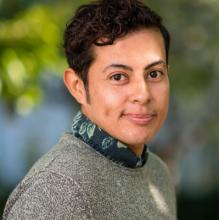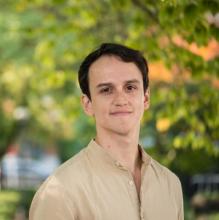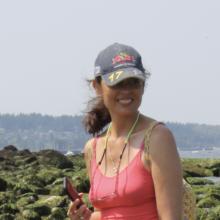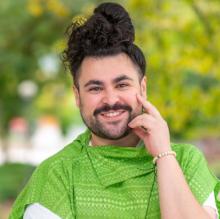Migrating and settling generates digital traces. Governments, institutions, and researchers are increasingly interested in collecting and analyzing these ever larger digital data sets. However, to whom does migrants’ data belong? How should migrants’ data be cared for, and what ethical perspectives can be drawn upon — from Indigenous data sovereignty movements, values-oriented design, to feminist framings of care? My doctoral research investigates these questions in dialogue with multiple communities whose interests and everyday practices are connected to immigration.
Research Description
Immigration is a process of remaking life elsewhere. In a time of growing digital regulation of human mobility across borders, this process extends beyond the circulation of people, knowledge, and material belongings. Migrating and settling generates digital traces. Governments, institutions, and researchers are increasingly interested in collecting and analyzing these ever larger digital data sets. However, to whom does migrants’ data belong? How are ways of working with data influencing immigration and settlement processes? How should migrants’ data be cared for, and what ethical perspectives can be drawn upon — from Indigenous data sovereignty movements, values-oriented design, to feminist framings of care? Coming from the field of Information Studies, my doctoral research investigates these questions in dialogue with multiple communities whose interests and everyday practices are connected to immigration. I am learning from and moving between settlement service providers, social justice advocates and migrant justice activists, immigration researchers, government staff and policymakers, and designers of digital systems that gather newcomers’ data. In conversation with stakeholders, we consider how information practices in this context are shifting, and how stakeholders suggest that newcomers’ data should be cared for.
What does being a Public Scholar mean to you?
I was drawn to the Public Scholars’ Initiative because of its meaningful support for initiating conversations and mutual learning across boundaries. I see public scholarship as a process of connecting with community-held expertise. This way of working makes it important to clarify whose voices and values are centred throughout the many points in a project, and to notice possible tensions between perspectives (acknowledging my own position as a co-participant). In this project, the pragmatic implications of this approach are to develop discussion points and knowledge exchange resources that are relevant to its contributors and to those beyond it.
In what ways do you think the PhD experience can be re-imagined with the Public Scholars Initiative?
Scholarly practices — of which I find the PhD experience is a microcosm — can be re-imagined in so many ways. Histories of disciplines, including my own, hold too many examples of research that intentionally or unintentionally reinforced historical injustices, extracted data and labour, or appropriated cultural belongings and specialized knowledge for the benefit of academia. I appreciate that the Public Scholars Initiative has the capacity to challenge traditional or market-oriented PhD research outputs, and to advocate for the products and processes of research to be more meaningful to groups implicated or involved in it. The Public Scholars Initiative is a space to develop these alternatives alongside peers who are similarly invested in re-considering scholarly practices.
How do you envision connecting your PhD work with broader career possibilities?
I look forward to being part of future research initiatives that are strongly oriented towards the ethics of caring for and upholding community priorities for activities with data, information, and digital technologies — whether this work lays in academia, community organizations, government, or somewhere between these spheres.
How does your research engage with the larger community and social partners?
I learn from interconnected expert groups, discussing their concerns, information practices, and perspectives on how data are generated, managed, and used to support or study immigration to Canada. I aim for our engagements to reach others beyond the bounds of this project through arts-based and narrative resources, a policy brief, and an open access report, to extend conversations.
Why did you decide to pursue a graduate degree?
I was motivated to pursue doctoral studies by the leaders, scholars, and existing initiatives that are part of a groundswell of support for more equitable possibilities in how we use information and technologies. These movements drew me in, as I had the chance to learn from mentors at the School of Information who are invested in furthering this work during my master’s degree. Noticing these possibilities sparked questions that I chose to pursue through doctoral research. I am inspired that these questions are at the same time being addressed through community organizing, governance, and policymaking.
Why did you choose to come to British Columbia and study at UBC?
Relationships are the roots of my research and identity as a scholar. I have benefited from the longstanding support and guidance of my peers, committee, and my supervisor, Dr. Lisa Nathan, whose research (re)imagines dominant ways of working with information and technologies to address long-term societal challenges. It is at UBC where I found the mentors, friends, and inviting interdisciplinary spaces that nourish this project.
I see public scholarship as a process of connecting with community-held expertise. This way of working makes it important to clarify whose voices and values are centred throughout the many points in a project, and to notice possible tensions between perspectives (acknowledging my own position as a co-participant).




